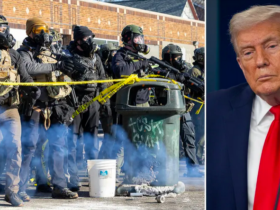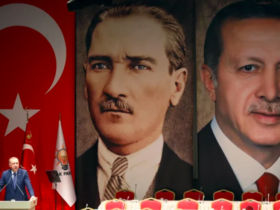Algerian military commander Gaid Salah died of a heart attack on December 23, after a record 15 years as Chief of Defence Staff and almost a year as the unofficial leader of the country in the wake of the resignation of President Abdelaziz Bouteflika. He has been replaced by the new head of the army, Said Chengriha.
Experts estimate that Salah’s death from a heart attack at the age of 79, which was announced on state television Monday, threatens to deepen the political crisis in Algeria in the coming months.
Salah’s role
Since Algeria gained independence, the army has been the real center of power in the country, acting as an arbitrator of factional conflicts between politicians and business interests.
The head of the armed forces of Algeria, Ahmed Gaid Salah, is well known for his loyalty to former President Bouteflika… in April, he was the one who directly advised the long-reigning leader to finally resign. As a result of his advice, Bouteflika (who had ruled since 1999) left the political arena, leaving Salah in charge.
Salah publicly stated that article 102 of the Constitution needed to be applied in the current situation, removing the president for health reasons.
UWI has covered the anarchic situation and mass protests which have been ongoing in Algeria in recent months, exploring whether a popular uprising is underway or a coup has been organized by external forces.
Salah played an important role in organizing the December 11 presidential elections, which the opposition called on the population to boycott. The election, in which five candidates closely associated with Mr. Bouteflika participated, was won by a former civil servant, Abdelmajid Tebboune, who is close to the army commander-in-chief.
The opposition’s dissatisfaction
Large scale protests first began in February after Mr. Bouteflika announced that he would not run for re-election, but would finish out his term. The opposition was not satisfied and called for Bouteflika’s immediate departure. The protesters demanded the complete dismantling of the political system, the departure of all the old leaders and the separation of the army and Parliament.
Protesters called to remove everyone in the president’s immediate entourage, including Salah himself and the new President, Tebboune.
Salah, in turn, rejected opposition demands for systematic change.
Some opponents criticized Salah on other grounds– for example, accusing him of “racism” (over the government’s contradictions with the ethnic Berbers), blaming him for arrests during the recent unrest, for his strong ties in the army and courts and for his having been arrested himself during the protests.
However, part of the opposition emphasizes foreign influence on the country’s internal affairs– despite Salah, Algeria is under heavy influence from the UAE and France. The opposition believes that whoever replaces Salah or Tebboune, even on a temporary basis, will not be able to bring about any real improvement without systemic changes taking place.
The protests have continued despite the days of mourning following Salah’s death.
The fate of the new general and the new president
Said Chengriha, as the protesters note, is not a young man either: even if he has a desire to move the country in the right direction, the UAE and France will interfere. The opposition has already stated that they will only accept his leadership if he releases all political prisoners and ensure the military’s withdrawal from the political sphere. Neither of these demands can be realized at the present juncture.
Tebboune is trapped as well. The unexpected death of Salah may directly affect the position of the new President who can to power in a politically unstable environment, having been elected despite extremely low turnout– and he has now lost his main ally in the army. With Chengriha’s appointment, the new president seeks to maintain Algeria’s position by promoting people loyal to the Algerian agenda on certain regional and domestic issues, including in the Western Sahara.
To engage with the protesters who reject his election, Tebboune has promised to undertake necessary reforms, predominantly targeting corruption.
As far as the geopolitical context is concerned, foreign forces are undoubtedly trying to influence domestic political processes in Algeria.
It is important to add that Abu Dhabi, Paris and Washington’s allies in Algeria are engaged in a serious fight to take advantage of the protests to their own advantage.















Leave a Reply